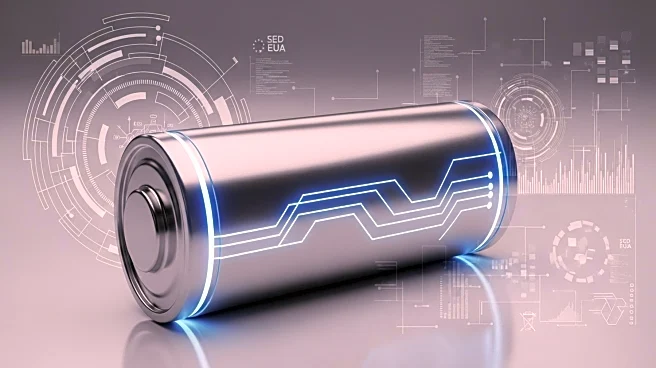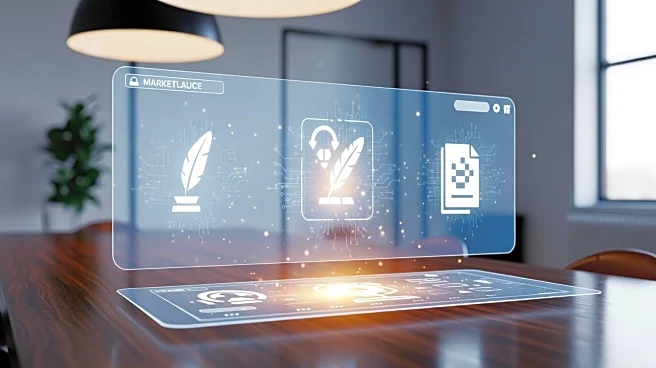What is the story about?
What's Happening?
Portugal is positioning itself as a key player in Europe's green industrial strategy by leveraging its significant lithium reserves. The country plans to launch an international tender for lithium prospecting licenses in 2025, targeting six regions. Projects like the Barroso Lithium Project and Montalegre are expected to supply lithium for up to 500,000 electric vehicles annually by 2027. These initiatives are part of Portugal's alignment with the EU's Critical Raw Materials Act, which mandates member states to secure 10% of their lithium needs domestically by 2030. The government has streamlined regulations and introduced subsidies to support lithium-related technologies, aiming to reduce reliance on China's lithium refining dominance.
Why It's Important?
Portugal's strategic focus on lithium production is crucial for reducing Europe's dependence on China, which currently controls 70% of global lithium refining. By producing battery-grade lithium locally, Portugal could significantly cut EU imports by the 2030s, enhancing energy security and economic resilience. This move aligns with the EU's sustainability goals and addresses environmental concerns associated with mining. The development of Portugal's lithium sector presents significant investment opportunities, supported by EU funding and strategic policy initiatives. This diversification is vital amid escalating geopolitical tensions over resource access.
What's Next?
Portugal's government plans to hold the delayed lithium tender in 2025, opening new exploration opportunities. The Barroso and Montalegre projects have received initial environmental approvals, with exploration slated for 2027. These projects are expected to attract capital inflows due to their strategic importance under the EU's Critical Raw Materials Act. As Portugal advances its lithium strategy, it will continue to address environmental advocacy and sustainability standards, potentially setting a precedent for other EU countries seeking to reduce reliance on external sources.
Beyond the Headlines
Portugal's approach to lithium extraction includes innovative methods like recovering lithium from geothermal energy sources, minimizing land disruption. This reflects a broader trend towards sustainable mining practices, which could influence future EU policies. The country's alignment with EU standards not only secures its role in the green transition but also strengthens its geopolitical position by reducing dependence on China. This strategic move could have long-term implications for Europe's energy security and industrial competitiveness.















